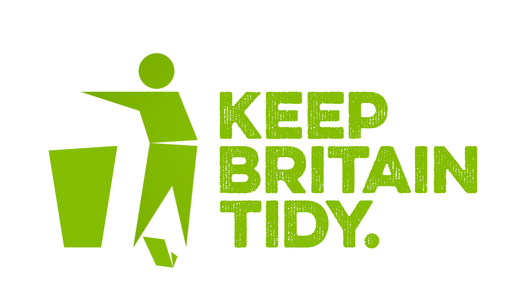Simple Steps to Prevent Plastic Pollution
The most important thing to remember when it comes to plastic is the 4 R’s and the 3 P’s:
-
Reduce the amount of plastic you buy.
- Reuse the plastic you have.
- Recycle your plastic. Make sure you know exactly what is and isn’t recycled by checking your council's website and look out for recycling centres at supermarkets.
- Responsibly dispose of your plastic. As a last resort, if you are out and about, please be sure to dispose of your plastic in a bin if you can’t take it home and recycle it.
- Only flush the 3 P’s – pee, poo and paper. Most wet wipes, cotton buds, sanitary pads and tampons contain plastic and should never be flushed down the loo.
There are ten major plastic culprits that pose a threat to our marine life. Follow our steps below to tackle marine plastic.
Step 1 - Reuse and refill!

Every year, the average person in the UK uses 150 plastic bottles. 5.5 billion plastic bottles are littered, incinerated or sent to landfill. By simply switching to a reusable water bottle we could save almost 7 tonnes of plastic from entering rivers and oceans every year!
Look out for Refill logos! This means they are Refill stations where you can refill your bottle for free. But don’t be afraid to ask in cafes, pubs and restaurants if they can refill your bottle too.
Challenge: While out and about, why not ask a cafe, restaurant or pub if they can refill your bottle?
Go a step further:
- Get milk delivered in glass bottles (you can now also get plant-based milk delivered in glass bottles!)
- Refill shampoo and detergent
- Only buy drinks in recycled plastic bottles
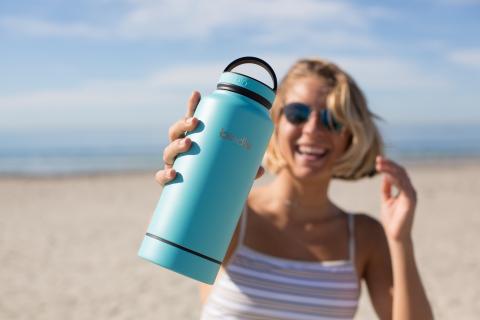
Step 2 - Watch what you flush!

Most sanitary products and wet wipes contain plastic. We use 11 billion wet wipes in the UK and flush over 1.5 billion sanitary products every year – that’s a lot of plastic!
Challenge: Make sure there is a bin in every bathroom in your house and encourage everyone in your household to use them!
Go a step further:
- Look for sustainable and reusable products like period pants, menstrual cups, nappies and reusable pads and face wipes.
- Make your own reusable pads and wipes - check out our resources for a free pattern.
- Avoid sanitary products and wet wipes made from plastic. There are alternatives on the market
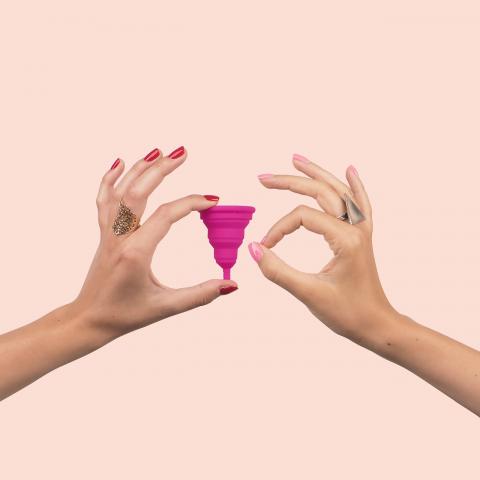
Downloads
Step 3 - That’s a wrap

0.3 billion crisp packets and 0.2 billion sweet wrappers end up as litter each year.
Challenge: If you see crisp or food wrappers on the ground, why not pick them up and pop them in the nearest bin? If there isn’t a bin nearby, you can always put it in a bag and take it home to dispose of it there.
Go a step further:
- Cut back on snack foods. This will be good for your health as well as good for the environment, so everybody wins!
- If you love your snacks (who doesn’t?!) why not try making your own! Or buy unwrapped snacks.
- Avoid excessively-packaged products like multipacks and individually wrapped sweets. Look out for snacks that come in recyclable packaging.
- Why not get a veg box delivery? They are usually plastic-free!
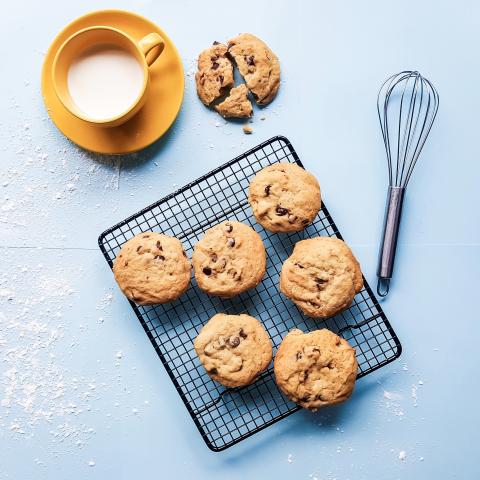
Step 4 - Bin the butt!

Most cigarette butts contain plastic. By disposing of butts correctly we could save over 2 tonnes of plastic from entering the environment every year!
Challenge: If you are a smoker, why not invest in a portable ashtray? Or if you see someone flicking a cigarette butt onto the floor, why not kindly remind them that they are made of plastic and could get swept into the nearest river and down to the sea?
Go a step further:
- Replace plastic cigarette filters with plant-derived filters.
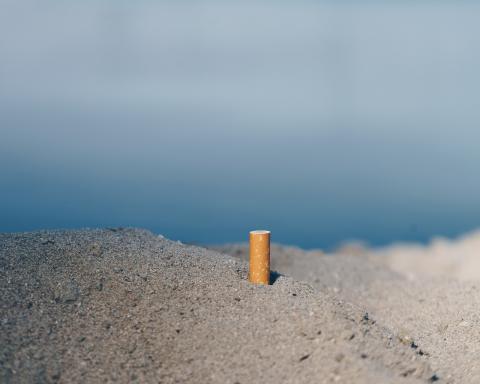
Step 5 - Don’t take away plastic

A whopping 5.2 billion food containers are used each year of which 0.3 billion end up as litter and can enter waterways.
Challenge: The next time you order a takeaway, ask them if you can use your own containers.
Go a step further:
- Choose outlets that sell food in recyclable containers.
- Instead of picking up one of the seven million meal deals sold every day, why not invest in a trusty lunch box and take your lunch with you?
- Avoid black plastic or polystyrene containers.
- Some restaurants and takeaways offer reusable containers, such as tiffin tins that you can either return or purchase.
- Alternatively, you can buy tiffin tins online, which are perfect for take aways!
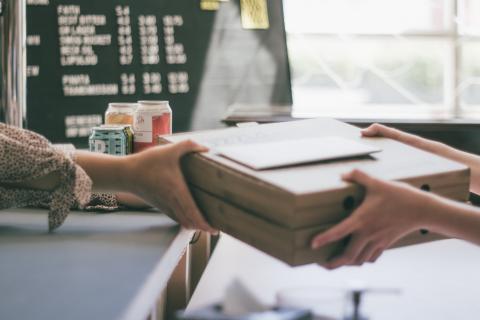
Step 6 – Not my cup of tea

An estimated 2.5 billion takeaway coffee cups are used and thrown away every year in the UK and only 4% are currently recyclable.
Challenge: Buy yourself a reusable coffee cup and take it with you when you next fancy a take-out coffee.
Go a step further
- Make sure you are buying sustainable alternatives when opting for a reusable cup. Some materials like bamboo are not always the best option and can have detrimental impacts on the environment.
- Now that you have branched out into the world of reusable beverage containers, why not invest in some reusable glasses to take on picnics or to events and festivals?
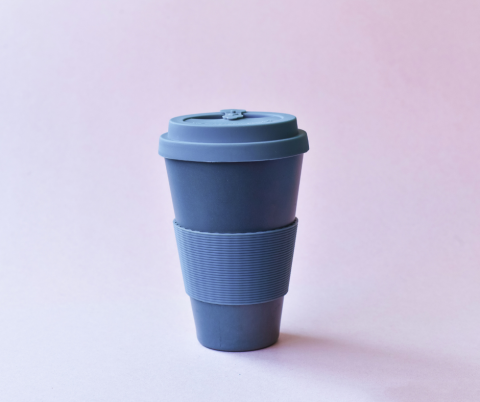
Step 7 - Totes amazing!

If we all stopped using single-use plastic bags and opted for sustainable alternatives like tote bags, we could save 9,000 tonnes of plastic waste every year.
Challenge: Remember to take your tote bags!
Invest in some reusable bags if you haven't already. Lots of us now have reusable bags, but many stay stuffed in car boots or in the house, so the biggest challenge is remembering them!
Go a step further
- Look out for non-cotton reusable shopping bags, eg. recycled plastic and hemp.
- Try to opt for paper single-use bags such as for produce or takeaway food items.
- Why not try some bees wax reusable wrapping for your sandwiches.
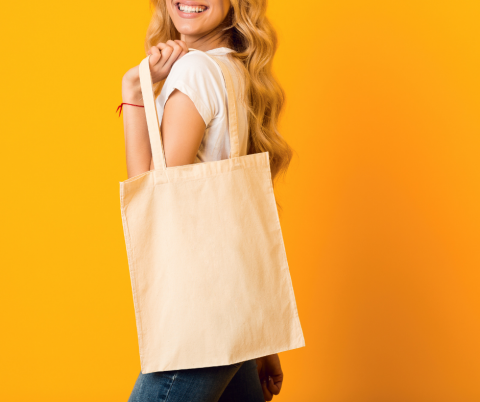
Step 8 - Stir it up

4.7 billion straws, 44.1 billion drinks stirrers and 16.5 billion single-use cutlery items are used each year. These items are not usually recycled and are often made from hard-to-recycle plastic polymers.
Challenge: Next time you are out in a cafe or pub, simply refuse the complimentary straw or drink stirrer if it is plastic!
Go a step further
- Invest in a reusable straw.
- Invest in some reusable cutlery or simply take a fork from home to have with your lunch!
- Use wooden or reusable cutlery when getting takeaway food or for stirring drinks.
- Use paper straws (and recycle or compost after use).
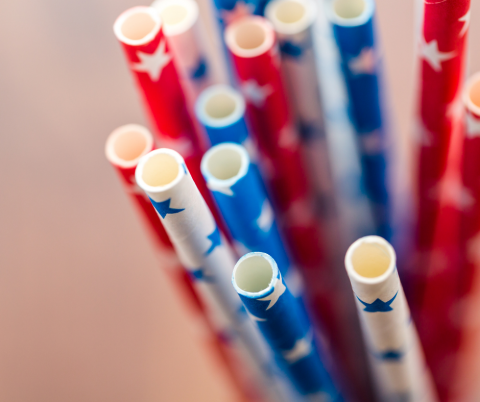
Step 9 - Switch it up

Now you have tackled the main offenders that end up in our rivers and get washed out to sea, why not have a look around your home and think about the simple switches you can make?
- Switch to bars of solid soap. Over 29 million people use antibacterial soap and hand wash in the UK. Liquid soap uses around 20 times more packaging on average than solid soap.
- Switch your disposable razor for a safety razor. Millions of disposable razors are sent to landfill every year in the UK as they are not currently recycled.
- Get a sustainable toothbrush. We are advised to regularly change our toothbrushes for dental health, but this means millions of non-recyclable plastic toothbrushes are thrown away and sent to landfill.
- Try a plastic-free deodorant. There are lots of eco-friendly, plastic-free deodorants on the market these days and you can even make your own! These are better for the environment and better for your body!
- Invest in a refillable pen. An estimated 15 million plastic ball pens are purchased every day across the globe, but most are not recyclable.
- Replace your plastic sponges and scourers with compostable sponges or coconut husk scourers!
Challenge: Take a look around each room in your home. What could be easily replaced with plastic-free alternatives?
Take a look online. Places like The Plastic Free Shop are a great place to start for some inspiration.
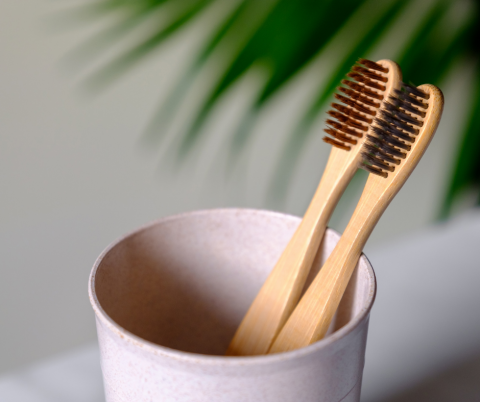
Step 10 - Make do and mend

Our current levels of consumption are simply unsustainable so we need to go back to basics and have a ‘make do and mend’ attitude! We don’t need to buy everything we use. We can easily make lots of things we use around the home that would usually be covered or packaged in plastic.
From cleaning products and deodorants to food items commonly packaged in plastic, we can have a big impact by simply making them ourselves.
Challenge: Have a go at making something! Choose one item in your home that you buy regularly that comes in plastic and make it!
Do you usually eat a lot of ready meals? Try making some meals from scratch a few times a week! Buy a lot of cleaning products? Try mixing up some traditional cleaner from vinegar or bicarbonate of soda! Love your houmous? Get the recipe and blend some up!
Go a step further
- Try learning a new skill! Take a cooking class, look up some new recipes or check out some free online videos on how to make your favourite meals.
- Bake some bread! It’s easier than you think.
- Rustle up some tasty biscuits and cakes for snacks.
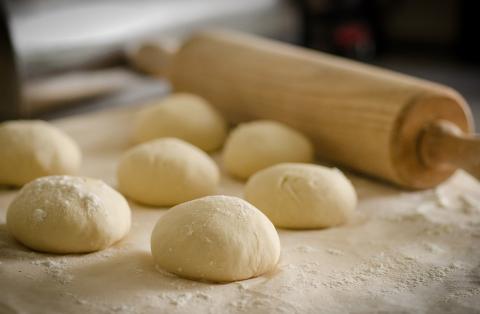
Take our Plastic Challenge!
Sign up here

Become a #LitterHeroes Ambassador!
Find out more


Natural Course is the UK’s only EU funded LIFE Integrated Project (LIFE 14 IPE/UK/027). It is a collaboration of public, private and third sector organisations working together to help deliver real improvements to rivers and the water environment acrost North West England.
Natural Course is designing projects to better understand and overcome some of the biggest barriers preventing the achievement of ‘good ecological status’ under the Water Environment (Water Framework Directive) Regulations in the North West River Basin District.
Find out more by visiting www.naturalcourse.co.uk
